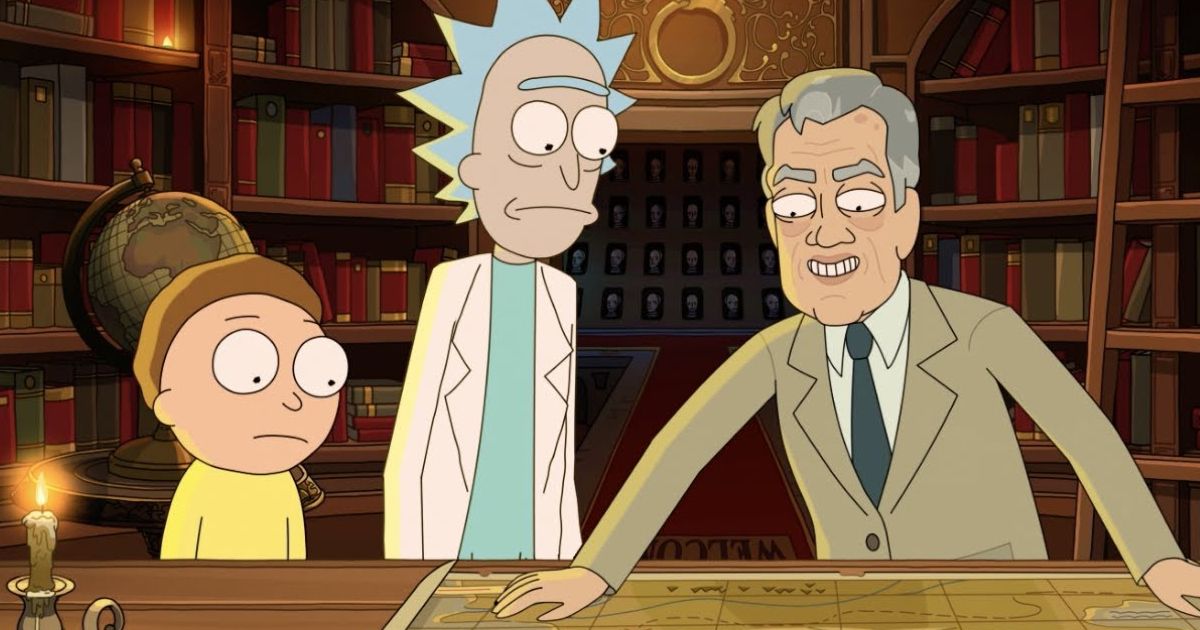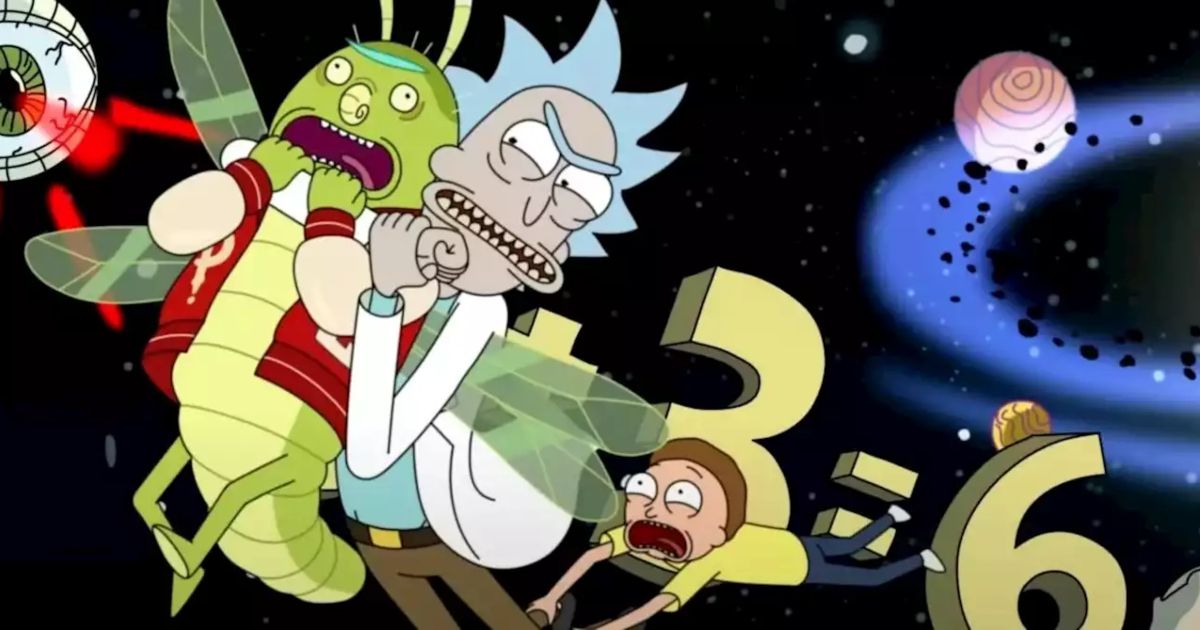Rick and Morty episode 7 was Rick and Morty’s most meta episode. It wasn’t just filled with your average series callbacks and references to story structure. In this episode, the writer is the villain. We get a reappearance of Story Lord as the main antagonist, as a callback to the season 4 episode “Never Ricking Morty.” But where that episode focused on series creator Dan Harmon’s personal story structure, the Story Circle, this episode is meta just for the sake of being as meta as possible. Self-deprecating and self-critical as always, episode 7 of Rick and Morty puts a magnifying glass up to a mirror and makes fun of everything that happens in screenwriting.
Rick and Morty fans are no strangers to meta-humor; it’s what the show is known for. Now long-term watchers demand it of the show’s writers, and dangerous criticisms can arise from a season with a “too normal” narrative arc. This was the big dose of meta we all wanted from the show, so now we can enjoy the rest of a regular plot. Rick’s spirit guide, Joseph Campbell, even mentions this at one point, saying they need more classic adventures. While the episode starts as a spoof on “Never Ricking Morty,” it becomes a big joke about all screenwriting.
Previously on Rick and Morty
Since Rick and Morty just returned from a mid-season hiatus, it seemed normal to start the show with a little recap. It even recalled some story points like Space Beth sleeping with Home Beth and Rick fixing the portal gun, but things quickly got out of hand. The show started referencing scenes from its own title sequence that hadn’t happened in the season yet.
Rick realizes something is going on and sets up a plot point, asking Morty to marry him, then take their honeymoon in a safe room. He quickly tries to explain to Morty that the mosquito-like creature, Previous Leon, is sucking energy from them by speeding up their narrative. That’s when this little green fly reveals himself, and Rick and Morty wrestle him through their own opening credits.
When they land back in the episode, Rick manages to shoot Previous Leon in the wing before he escapes through a break in the fourth wall to the meta layer of storytelling. Rick tells Morty to put on a pair of fourth-wall glasses, allowing Morty to see all kinds of storytelling tools inside the episode. There’s a “Deus ex Machina,” a rack of “Chekhov’s Guns,” a “Ticking Clock,” and a telescope labeled “Foreshadowing.”
As the pair journey through to the meta layer, the storytelling mechanics only become more literal. Literal narrative threads are hanging from a tree of pages that we can only assume is a story tree. There’s a “Road of Trials,” and a bush marked “Weeds” that references when a writer might get too distracted by a single detail to continue the narrative. That’s where Rick and Morty find Previous Leon, who inevitably leads them to Story Lord.
Story Lord uses Jesus Christ (played by Chris Meloni) to beat them up as a callback to the “Never Ricking Morty” episode when they trapped Story Lord in the Bible. After stealing Rick’s mode of travel through the meta layer, a remote, Story Lord transports himself away to go find his “motivation.” Previous Leon attacks Jesus, and we see a full narrative arc from him as Leon drains the rest of Jesus’ narrative potential.
Rick and Morty Find God
Story Lord finds his own creator by searching for the address on the back of his own Story Train toy from season 4. He finds a writer so poor that he’s heating up a hot dog with a lighter. With a hoodie, glasses, and beard, this blue alien looks suspiciously like Dan Harmon himself. As the writer begins to explain how Story Lord was created, he goes into the writing process of the “Never Ricking Morty” episode. He references characters from that episode, how the inspiration was initially drawn from Chaucer’s Canterbury Tales, then changes to a similarly inspired version of an episode from Batman: The Animated Series.
Meanwhile, Rick and Morty travel to the headquarters of the “Self-Referential Six,” which are just a series of troublesome superheroes whose names and powers derive from more narrative gimmicks. We have Miss Lead, Flash Back, Connie TinuityError, Protago Nick, and Mr. Twist. As they battle, Rick and Morty search for their prisoner Brett Conn, a god-like vigilante able to retcon anything into existence. But, of course, the fight goes sideways, and things get out of hand.
After Rick and Morty escape, they’ve been beyond the fourth wall for so long that they start to fade from existence in an icy tundra. But they are saved from without (a key step in the story structure of the Hero’s Journey) by none other than Joseph Campbell, who’s voiced by Dan Harmon. Campbell is famous for writing The Hero with a Thousand Faces, a tome which distills a pattern from myths and legends around the globe to point out the similarities of how all humans tell stories. His Hero’s Journey was the model for Harmon’s Story Circle, and now Harmon steals his own mentor’s body to complete one of his own stories. He also reduces his astounding impact on human culture down to Campbell’s soup.
Story Lord forces his writer to make him a motivation machine, and while Rick battles Story Lord, Joseph Campbell, as a ghost, tells Morty how to get a writer that doesn’t really want to write to stop writing. All the while looking like a slave, pushing a giant millstone of story trains. When the writer stops, Story Lord is vulnerable, and Rick kills him by literally punching him down – a phrase that basically means purposely insulting an artist through a critique of their work.
At the end of the episode, Rick kills story lord by using a Rick plushie since it was Story Lord’s toy that started this whole thing. He even gives a website to buy the plushie at www.rick-plush.biz. This is easily one of the most meta episodes Rick and Morty has ever done. And after watching it, you’ll be full on meta-humor, at least until next season.



